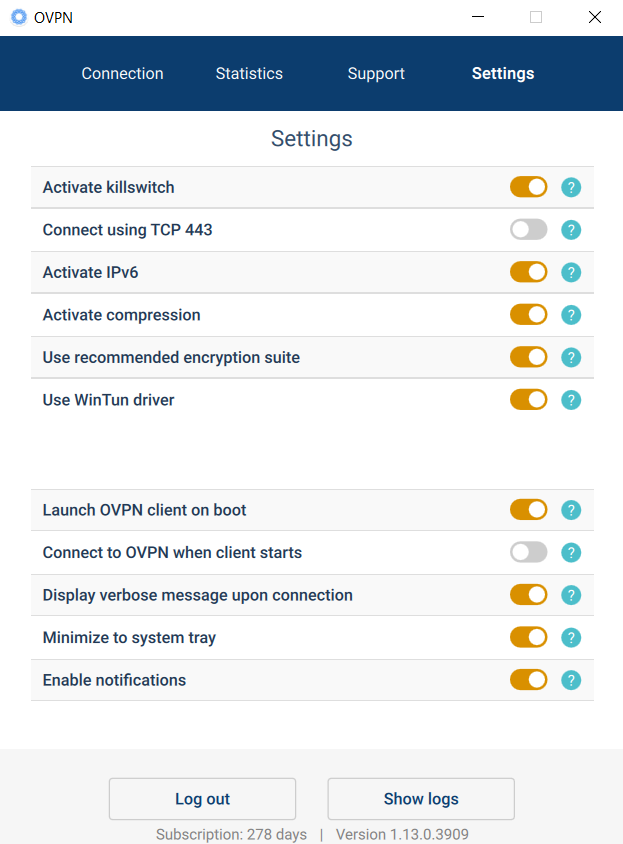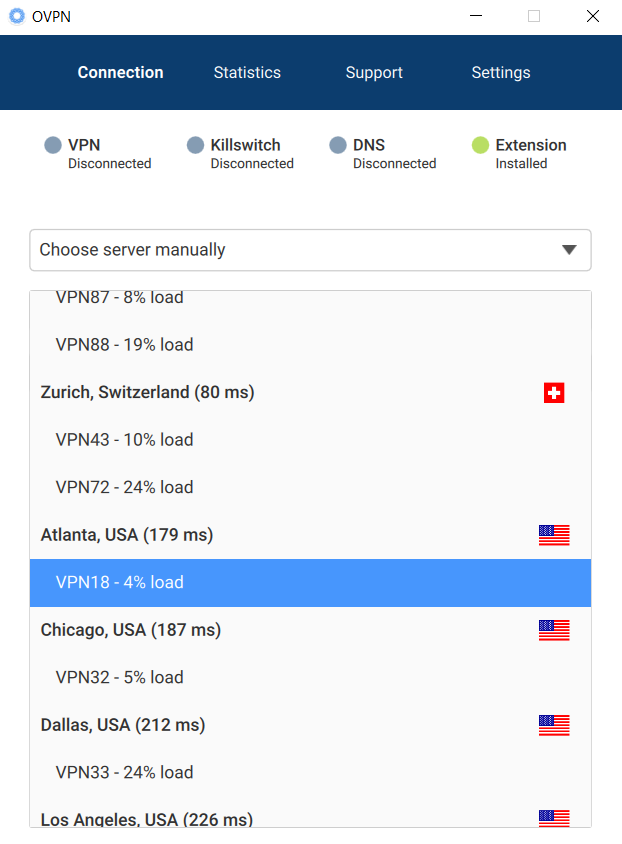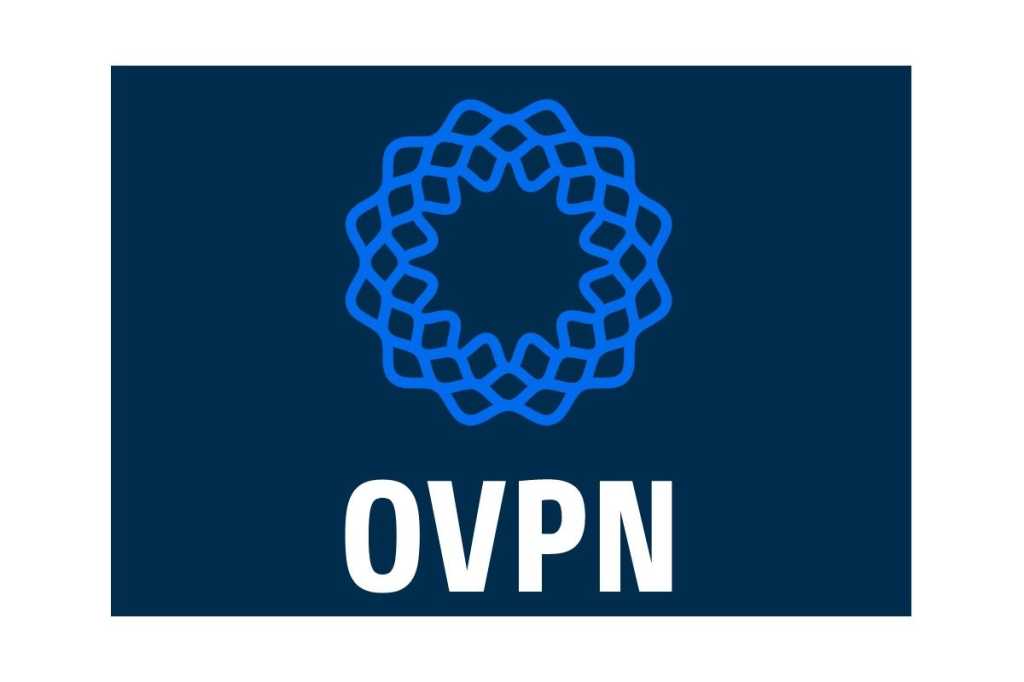At a Glance
Expert’s Rating
Pros
- Privacy and anonymity are top priorities
- Accepts cash payments for added anonymity
Cons
- Smaller number of servers
- Limited country selection
Our Verdict
OVPN is a relatively small VPN service that takes privacy very seriously. It’s limited to 19 country choices, with less than 100 servers in the network. Yet the speeds are pretty good, it supports U.S. Netflix streaming, as well as several other services such as Disney+ and Hulu, and multi-hop is free for subscribers who pay for six months or more.
Price When Reviewed
$4.99 per month
Best Prices Today
OVPN in brief:
- P2P allowed: Yes
- Business location: Stockholm, Sweden
- Number of servers: 96
- Number of country locations: 19
- Cost: $59.88 per year
- VPN protocol: OpenVPN
- Data encryption: ChaCha20-Poly1305 (OpenVPN 2.5+)
- Data authentication: DHE using RSA with 4096-bit key
- Handshake: TLSv1.3
The first time we reviewed OVPN, it was a bit disappointing. The service got so many things right but performance just wasn’t up to snuff. These days that’s not a concern. OVPN isn’t fast enough to make it into our top 10 speed demons, but it is in the top 20.
The big appeal of OVPN is how seriously it takes privacy and security. OVPN was one of the earliest VPN services to adopt diskless servers, which run the machine’s operating system and VPN software entirely in RAM. Write permissions have also been removed for OpenVPN processes and syslogs on each server. In addition, the servers are configured to not accept physical console access; it’s also not possible to use the servers’ USB ports or hook up a keyboard.
You can read all about its setup on the company’s blog and even see photos of all of its colocated servers (click on the location names underneath the map).
That’s a reassuring approach for a VPN aimed at maximizing user privacy.
Note: This review is part of our best VPNs roundup. Go there for details about competing products and how we tested them.
Services and features
IDG
Not much has changed with the design of the OVPN app on Windows. OVPN still uses four basic “tabs” at the top: Connection, Statistics, Support, and Settings.
Connection offers to connect you to the best server in 19 different countries, or you can choose your server manually. With the latter method, you can select from a list of all available servers complete with their current loads, and the ping time in milliseconds between you and the server location. Those are two key stats to help you pick the best server possible.
Once you’re connected, the app shows a graph of bandwidth usage along with some basic information such as the VPN connection’s IP address, and the time spent connected.
The Statistics tab shows both your up and down bandwidth in the last 60 minutes, and your usage over the last 24 hours. All of this data is saved locally, and does not get sent to OVPN.
The Settings section is pretty straightforward, with a large number of sliders allowing you to turn features on or off. There’s not much here to turn on or off, really, unless you want to activate OpenVPN over TCP port 443. You can also activate a feature that automatically connects to an OVPN connection when the client starts. Other than that there isn’t much to turn on or off.

IDG
OVPN provides an internet kill switch, and IPv6 is automatically activated. It also enables compression by default, and offers the usual options to launch on boot and automatically connect.
Finally, OVPN offers a multi-hop feature that you can activate by clicking the second drop-down menu item under the Connection tab. Multi-hop allows you to further hide your location by sending your traffic through two servers before hitting the internet instead of just one. OVPN markets multi-hop as an extra feature that costs an additional $5 per month, but it’s included for free when you sign up for six months or longer.
Performance
In our tests, OVPN did well. Overall, based on five country locations around the globe, tested over three days at three different times, OVPN maintained about 31.6 percent of the base speed.
That’s not as good as last time when OVPN maintained around 44 percent. Nevertheless, OVPN’s speeds are very good and should be appropriate for pretty much anything you want to do.
Privacy, anonymity, and trust
OVPN, like Mullvad, doesn’t require an email address to sign up. You can provide one to aid in account recovery should you forget your password, but the choice is yours.
OVPN only requires a username and password, and the website will automatically generate a numeric username for you if you prefer. That makes for a better level of anonymity, or pseudo-anonymity, than most VPN services provide.

IDG
As we’ve already mentioned, OVPN’s privacy policy says it won’t keep any logs, and the company has taken physical actions to make sure its servers can’t keep any data. That’s outstanding. OVPN also provides a browser extension for Chrome and Firefox that blocks ads and trackers and will block select websites unless you’re using a live VPN connection with OVPN.
OVPN is operated by OVPN Integritet AB, which is based in Stockholm, Sweden. The company’s founder is David Wibergh.
OVPN costs $59.88 per year, which works out to $4.99 per month. You can also opt for six months for $41.94, or a single month for $11. OVPN accepts payments via credit card, PayPal, cryptocurrency, or even cash sent via mail. In addition to the cash, OVPN requires you to include a code so the company can properly assign credit to your account. OVPN allows for four simultaneous device connections; however, for every year you subscribe to the service you get one extra connection and this is cumulative, meaning the more years you remain a customer the more simultaneous connections you get. You can read more about this policy on OVPN’s website.
Conclusion
OVPN’s design hasn’t changed, but the service is cheaper, it still offers multi-hop for free to regular subscribers, it supports popular streaming services, and it pays a lot of attention to security and privacy.
Editor’s note: Because online services are often iterative, gaining new features and performance improvements over time, this review is subject to change in order to accurately reflect the current state of the service. Any changes to text or our final review verdict will be noted at the top of this article.
Ian is an independent writer based in Israel who has never met a tech subject he didn’t like. He primarily covers Windows, PC and gaming hardware, video and music streaming services, social networks, and browsers. When he’s not covering the news he’s working on how-to tips for PC users, or tuning his eGPU setup.

